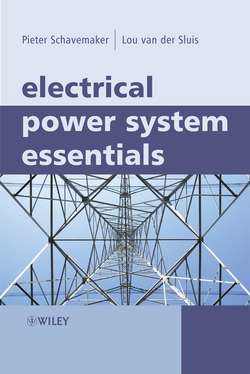Описание книги
Much of the basic hardware that generates, transmits and distributes electricity has changed little over the past century. However, the techniques applied in the power system have advanced, leading to greater transformer efficiency and more economic transmission and distribution. As the demand for electricity in both the developed and developing world increases, governments and electricity providers continue to look for alternative means of creating energy through renewable sources. Today’s needs also include well-designed systems that are capable of producing large quantities of electricity in the safest, most cost-effective way for the benefit of both individuals and industry. This book provides an accessible introduction to the interesting world of alternating current (AC) power systems, focusing on the system as a whole. After laying out the basics for a steady-state analysis of three-phase power systems, the book examines: the generation, transmission, distribution, and utilization of electric energy; the principles of thermal, nuclear and renewable energy plants; power system control and operation; the organization of electricity markets, the changes currently taking place, and the developments that could lead to alternative power systems in the future. Inside, you will find appendices that support the key text, supplying information on the modeling of power system components and including basic equations derived from Maxwell’s laws. Numerous practical examples, case studies and illustrations, demonstrate the theory, techniques and results presented in the text, and accompanying Powerpoint slides are available on a supplementary website. With its pragmatic approach, Power System Essentials is ideal for senior undergraduate students in electrical engineering who require an up-to-date overview of the subject. This book also acts as a concise reference, suitable for postgraduates and professionals from a range of disciplines who would like to work in this field.
